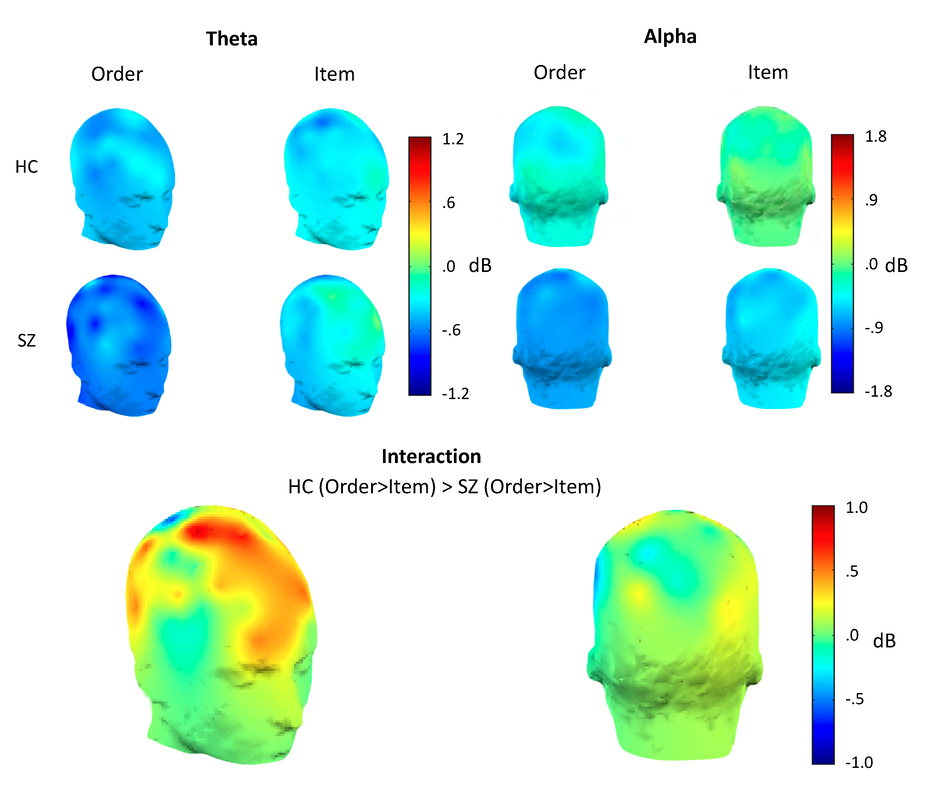Prior studies demonstrated that neural oscillations are enhanced during working memory (WM) maintenance and that this activity can predict behavioral performance in healthy individuals. However, it is unclear whether the relationship holds for people with WM deficits. People with schizophrenia have marked WM deficits, and such deficits are most prominent when patients are required to process relationships between items, such as temporal order.
Here, we used EEG to compare the relationship between oscillatory activity and WM performance in patients and controls. EEG was recorded as participants performed tasks requiring maintenance of complex objects ("Item") or the temporal order of objects ("Order"). In addition to testing for group differences, we examined individual differences in EEG power and WM performance across groups. Behavioral results demonstrated that patients showed impaired performance on both Item and Order trials. EEG analyses revealed that patients showed an overall reduction in alpha power, but the relationship between alpha activity and performance was preserved. In contrast, patients showed a reduction in theta power specific to Order trials, and theta power could predict performance on Order trials in controls, but not in patients. These findings demonstrate that WM impairments in patients may reflect two different processes: a general deficit in alpha oscillations and a specific deficit in theta oscillations when temporal order information must be maintained. At a broader level, the results highlight the value of characterizing brain-behavior relationships, by demonstrating that the relationship between neural oscillations and WM performance can be fundamentally disrupted in those with WM deficits.
2 Comments
1/2/2024 07:44:02 am
How does the study on schizophrenia patients' working memory reveal specific disruptions in theta oscillations during the maintenance of temporal order information?
Reply
Leave a Reply. |
InfoMAP faculty authors are bold in all citations. Archives
December 2020
Categories |

 RSS Feed
RSS Feed
